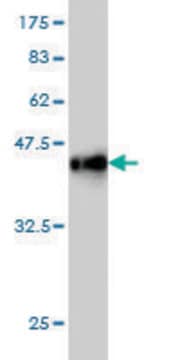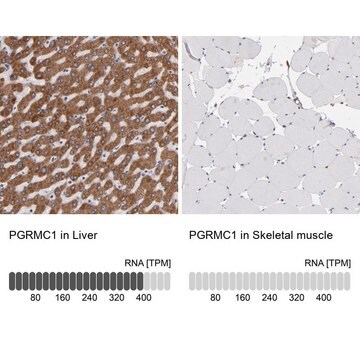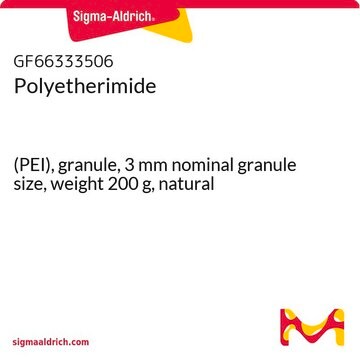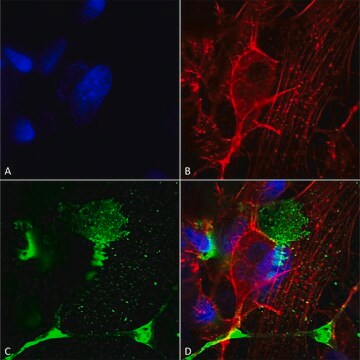07-577
Anti-Stargazin/Cacng2 Antibody, CT
Upstate®, from rabbit
Synonym(s):
Neuronal voltage-gated calcium channel gamma-2 subunit, calcium channel, voltage-dependent, gamma subunit 2, voltage-dependent calcium channel gamma-2 subunit
About This Item
Recommended Products
biological source
rabbit
Quality Level
antibody form
purified antibody
antibody product type
primary antibodies
clone
polyclonal
species reactivity
rat, mouse
manufacturer/tradename
Upstate®
technique(s)
immunocytochemistry: suitable
immunoprecipitation (IP): suitable
western blot: suitable
isotype
IgG
NCBI accession no.
UniProt accession no.
shipped in
dry ice
target post-translational modification
unmodified
Gene Information
mouse ... Cacng2(12300)
rat ... Cacng2(84347)
General description
There are five high voltage activated calcium channel types (L, N, P, Q, and R) and one low voltage activated channel type (T). Each of these channels exists as a heteromultimer of a1, b, a2/ d and g subunits with the voltage activated calcium channel function carried by the a subunits. VGCCs exert spatial and temporal control over cellular calcium concentrations and serve to modulate neurotransmitter release, hormone secretion, muscle contraction, electrical activity, cell metabolism and proliferation, gene expression, and neuronal survival.
Specificity
Immunogen
Application
2-5 µg of this antibody has been reported by an independent laboratory to immunoprecipitate Stargazin in rat P2 lysate.
Neuroscience
Synapse & Synaptic Biology
Quality
Western Blot Analysis:
0.5-2.0 µg/mL of this antibody detected Stargazin in RIPA lysates from rat brain microsomal preparation (Catalog # 12-144).
Target description
Physical form
Storage and Stability
Analysis Note
Brain tissue
Other Notes
Legal Information
Disclaimer
Not finding the right product?
Try our Product Selector Tool.
Storage Class Code
10 - Combustible liquids
WGK
WGK 1
Certificates of Analysis (COA)
Search for Certificates of Analysis (COA) by entering the products Lot/Batch Number. Lot and Batch Numbers can be found on a product’s label following the words ‘Lot’ or ‘Batch’.
Already Own This Product?
Find documentation for the products that you have recently purchased in the Document Library.
Our team of scientists has experience in all areas of research including Life Science, Material Science, Chemical Synthesis, Chromatography, Analytical and many others.
Contact Technical Service







